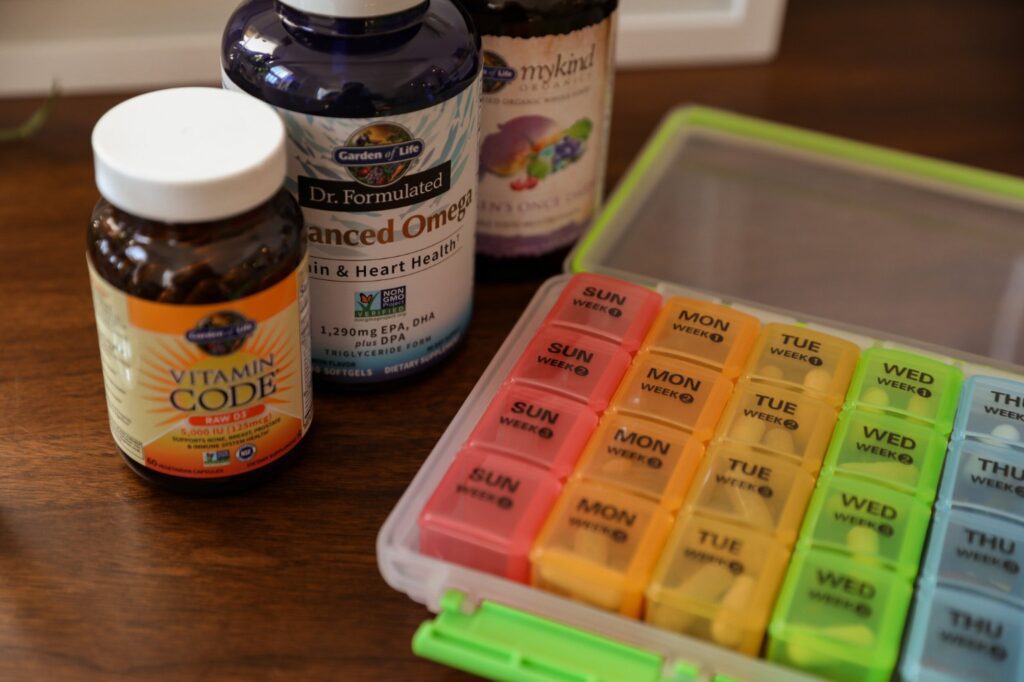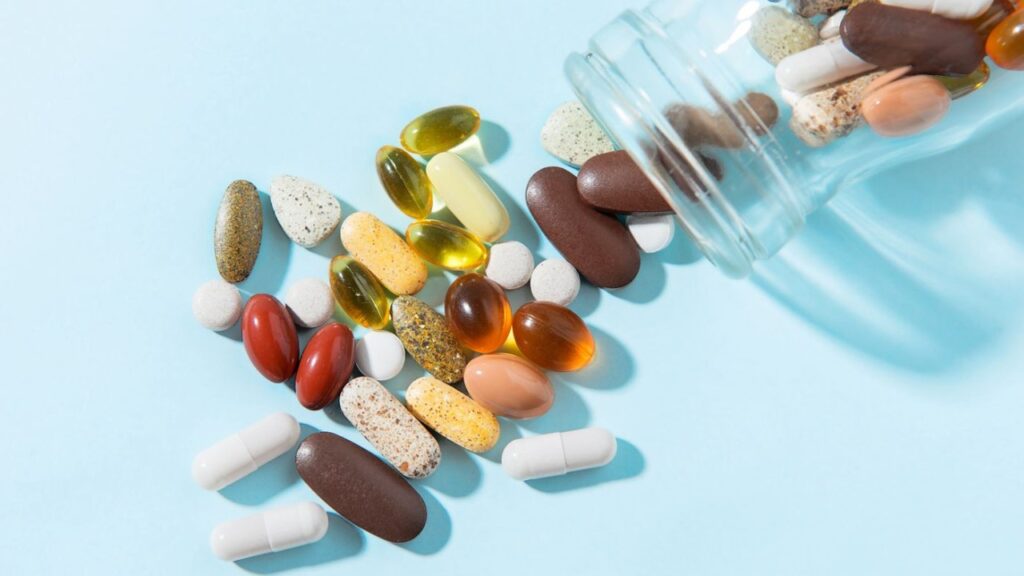I can help you with that! Making your supplements at home can be a great way to target specific needs and have more control over the ingredients. But it’s important to understand the process before you dive in.
Do your research
First things first, figure out what kind of supplement you want to make. Are you looking for a daily multivitamin, a specific mineral boost, or something to target a particular health concern? Once you have a goal, research the best ingredients to achieve it.
- Gather your supplies:
You’ll need a few things to get started. Here’s the basic kit:
- Empty capsules: These come in different sizes, so choose one that fits the amount of your supplement blend. You can find gelatin or vegetarian capsules.
- Ingredients: These will depend on your chosen supplement. Make sure to get high-quality powders or herbs from a reputable source.
- Capsule filling tool (optional): This can make the process a lot easier and less messy. You can find manual or electric capsule fillers.
Grinder (optional)
If your ingredients aren’t already in powder form, you’ll need a mortar and pestle or a coffee grinder to grind them finely.
Prepare your ingredients
If grinding is needed, take care of that first. Then, measure out each ingredient according to your recipe. Be precise, as dosage is important.
Fill the capsules
Here’s where the capsule-filling tool comes in handy, but you can also do it by hand. If by hand, carefully fill the body (larger part) of the capsule with your blend, then gently add the top (smaller part) and snap it shut.
Store them properly
Once filled, keep your DIY supplements in a cool, dark place in an airtight container. This will help them stay fresh and potent.
It’s a good idea to start slow with your DIY supplements and see how your body reacts. There are plenty of online resources and recipes available to get you started, but remember, safety and proper information are key!
What steps are involved in creating DIY supplements?
Making your supplements can be a fun and rewarding way to personalize your health routine. But before you jump in, it’s good to understand the steps involved.
- Plan Your Attack:
Just like any project, it all starts with a plan! Figure out what kind of supplement you want to create. Are you looking for a daily multivitamin boost, targeting a specific health concern (like better sleep or more energy), or focusing on a particular nutrient? Researching the best ingredients to achieve your goals is key.
- Gather Your Supplies:
Think of this as your DIY supplement starter kit:
Empty Capsules
These come in different sizes, so choose one that fits the amount of your supplement blend. You can find gelatin or vegetarian capsules depending on your preference.
Ingredients
This is where your research comes in handy! Make sure to get high-quality powders, herbs, or extracts from a reputable source.
Capsule Filling Tool (Optional)
This can be a lifesaver, making the process much easier and less messy. You can find manual or electric capsule fillers online or at health stores.
Grinder (Optional)
If your chosen ingredients aren’t already in powder form, you’ll need a way to grind them finely. A mortar and pestle or a coffee grinder (used solely for supplements) can work.
- Prep Time:
Now that you have your battle plan and supplies, it’s prep time! If grinding is needed, take care of that first. Then, meticulously measure out each ingredient according to your recipe. Remember, dosage is important, so be precise!
- Filling Up:
Here’s where your capsule filling tool comes in useful, but don’t worry, you can do it by hand too. If going the manual route, carefully fill the larger part of the capsule with your blend, then gently add the smaller top part and snap it shut.
- Stockpile and Store:
Once your capsules are filled with your awesome DIY creation, store them properly. Find a cool, dark place with an airtight container. This will keep your supplements fresh and potent for as long as possible..
Taking the DIY supplement route can be a great way to personalize your health journey. Just be sure to do your research, start slow, and listen to your body!
What kind of ingredients can I use to make my supplements?

The world of DIY supplements offers a treasure trove of ingredients to target different health goals! Here’s a peek at some popular options:
Vitamins and Minerals:
Vitamin Powders
Powders like Vitamin C, D3, and B complexes are readily available and can be easily incorporated into your DIY capsules.
Mineral Powders
Think calcium, magnesium, and zinc! Again, look for high-quality powdered forms for easy mixing.
Herbal Powders:
Powerhouse Herbs
For a natural boost, consider herbs like turmeric (known for its anti-inflammatory properties), Ashwagandha (an adaptogen for stress management), or Rhodiola (used for fatigue).
Specialty Herbs
Explore options like saw palmetto for men’s health or red clover for women’s hormonal balance (always consult your doctor before using these).
Superfood Powders
Add a nutritional punch with powders like green tea extract, spirulina, or maca root.
Probiotics
These beneficial gut bacteria come in powder form and can support digestive health.
Choosing Wisely:
Quality Matters: Source your ingredients from reputable health food stores or online retailers known for quality control.
Powders are easiest to work with for DIY capsules, but some herbs might come in extracts or tinctures (liquids). Research the best form for your chosen ingredient.
Remember:
This isn’t an exhaustive list! There are many other ingredients you can explore based on your specific needs.
Do your research on each ingredient to understand its potential benefits and any side effects.
Always consult with your doctor before starting any new supplements, especially if you have any underlying health conditions or take medications.
With a little research and planning, you can create your personalized blend of DIY supplements using a variety of exciting ingredients!
Where can I find high-quality ingredients for DIY supplements?
Finding high-quality ingredients is key to making safe and effective DIY supplements! Here are some places to look:
Health Food Stores:
These are a great first stop. Look for stores with a good reputation for quality products and knowledgeable staff. They might carry powdered vitamins, minerals, herbs, and other supplement ingredients.
Online Retailers:
The internet offers a vast selection, but be cautious! Stick to reputable online stores specializing in natural health products. Look for companies with certifications or third-party testing to ensure quality control.
Herb Shops:
These can be a treasure trove for finding specific herbs in various forms (powders, extracts, tinctures). Look for shops with experienced herbalists who can answer your questions and guide you toward the best option for your DIY project.
Considerations:
Look for brands that are transparent about their sourcing practices and prioritize organic, non-GMO ingredients whenever possible.
Check for third-party certifications like USP (United States Pharmacopeia) or NSF (National Sanitation Foundation) that indicate quality control.
Always pay attention to the label! Check for expiration dates, dosage recommendations, and any potential allergens.
Grow Your Own
If you’re feeling adventurous, consider growing your herbs for DIY supplements. This gives you ultimate control over quality but requires research on proper harvesting and drying techniques.
Safety First:
- When buying online, be wary of unrealistically cheap prices, which could indicate lower-quality ingredients.
- Don’t be afraid to ask questions! Contact the seller or store staff to learn more about their sourcing and quality control procedures.
By keeping these tips in mind, you can find the high-quality ingredients you need to create safe and effective DIY supplements. Remember, a little extra effort on the front end ensures you’re putting the best possible ingredients into your body.
What are the advantages of making my supplements?

There are some definite perks to taking the DIY route with your supplements! Here’s a look at some of the potential advantages:
Customization is King
This is a big one! You get to choose exactly which ingredients go into your supplements, tailoring them to your specific needs and health goals. Want a focus on energy? You can create a blend with ingredients like B vitamins and ginseng.
Cost Control
Over time, making your supplements can be more cost-effective than buying pre-made ones, especially if you take them regularly. Just remember to factor in the initial investment for ingredients and any capsule-filling tools.
Quality Check
By sourcing your ingredients, you can potentially have more control over the quality. You can choose organic, non-GMO ingredients if that’s important to you, and avoid unnecessary fillers or additives often found in commercial supplements.
Freshness on Demand
When you make your supplements, you can ensure they’re fresh. Pre-made supplements can sit on store shelves for a while, potentially losing some potency.
Allergy Awareness
If you have allergies or sensitivities to certain ingredients commonly found in supplements, making your own allows you to completely avoid them.
DIY supplements might not be as convenient as grabbing a pre-made bottle. There’s some prep work involved.
It’s important to do your research to ensure you’re using the correct dosages and that there aren’t any interactions with medications you’re taking.
Making your supplements doesn’t guarantee the same level of standardization and regulation as commercially produced ones.
Overall, DIY supplements can be a great way to personalize your health routine and potentially save money in the long run. Just be sure to weigh the advantages against the potential drawbacks and approach it with information and caution. It’s also a good idea to talk to your doctor before starting any new supplements, DIY or store-bought.
Is it cheaper to make my supplements than to buy them?
The answer to whether making your supplements is cheaper depends on a few factors:
Cost of Ingredients:
Buying in bulk
If you plan on making supplements regularly, buying ingredients in bulk can save money compared to buying smaller quantities. However, you’ll need to have storage space for them and make sure they don’t expire before you use them all.
Ingredient quality
High-quality ingredients, especially organic or specific extracts, can be expensive. Consider if the cost increase justifies the perceived benefits.
What about the Frequency of Use?
Daily multivitamins: If you take a daily multivitamin, making your own might be cost-effective in the long run.
Less frequent use: For occasional supplements or ones you only take seasonally, buying pre-made might be cheaper as you won’t have leftover ingredients.
Initial Investment:
Capsule filling tools
These can range in price from basic manual ones to pricier electric models. Consider how often you’ll be making supplements to see if the investment makes sense for you.
Hidden Costs:
Time investment: Researching ingredients, measuring them out, and filling capsules takes time.
Storage containers: You’ll need airtight containers to store your DIY supplements to keep them fresh.
Here are some strategies to potentially make DIY supplements more cost-effective:
- Buy ingredients on sale or with coupons.
- Share capsule-filling tools with friends or family.
- Start with simple recipes using fewer ingredients.
It can be cheaper to make your supplements, especially if you take them regularly and prioritize high-quality ingredients. However, factor in all the costs and compare them to the price of pre-made options. Remember, convenience and time savings also have value.
The best approach? Do some calculations based on your specific needs and weigh the costs against the potential benefits.
How much of each ingredient should I use in my DIY supplements?

Figuring out the right amount of each ingredient for your DIY supplements is crucial, and there’s no one-size-fits-all answer. Here’s why:
Dosage Matters
Using too little of an ingredient might not give you any benefit, while too much could lead to unwanted side effects.
Individual Needs
Everyone’s body is different, and the optimal dosage might vary depending on factors like age, health, and why you’re taking the supplement.
Here are some resources to help you determine safe and effective dosages for your DIY supplements:
Look for reputable health websites that provide information on supplement dosages. Government health organization websites or university-affiliated health information sites are good starting points.
Scientific Studies: Some scientific studies might mention dosages used in research. However, be cautious about interpreting these yourself and consult a healthcare professional for guidance.
How much of each ingredient should I use in my DIY supplements?
Figuring out the perfect amount for each ingredient in your DIY supplements can feel like deciphering a secret code! It’s important to get it right, though, because too little might not do anything and too much could cause problems.
Why? Dosages depend on a few things:
Different ingredients have different potencies. A tiny amount of something super strong might be all you need, while a larger amount of a gentler ingredient might be safe.
What are you hoping to achieve with your DIY supplements? Boosting energy will require different ingredient amounts than say, promoting better sleep.
We’re all unique! Age, health, and even your metabolism can influence how your body processes supplements.
So, how do you find the right amount for your DIY concoction? Here are some tips:
Government health organization websites or university-affiliated health information sites are great places to start. They often have information on safe and effective dosages for various supplements.
Scientific Studies (Be Careful!)
While some studies might mention dosages used in research, these can be tricky to interpret for DIY purposes. It’s always best to consult a healthcare professional for guidance on applying research findings to your situation.







